As of Thursday afternoon, the new coronavirus has infected more than 2700 people in Australia ,12 of them death. facing the virus hit, what can we do and what can not be done? New fast net here to summarize the five "want" and five "do not" during the epidemic, to help you through this difficult period.
To: Wash your hands frequently
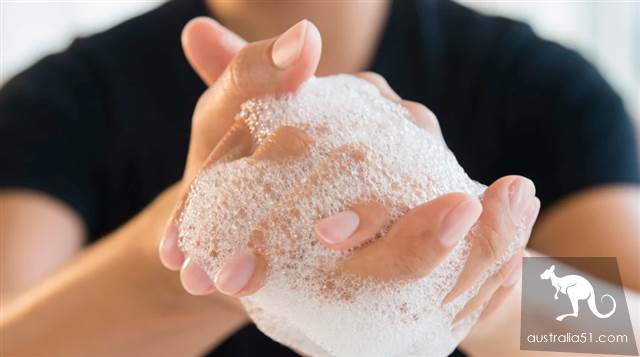
Wash your hands frequently during the outbreak (Sydney Morning Herald Photo)
Of all the recommendations for the prevention and treatment of new coronaviruses, the most important thing is always to wash your hands. According to the World Health Organization (WHO), if the hands are not clearly dirty, use alcohol-free hand sanitizer regularly to clean the hands, or wash hands with soap and water. It should be noted, however, that the use of wash-free hand sanitizers is less effective than cleaning hands with soap and water, according to the U.S. Centers for Disease Control and Prevention. One of the main reasons is that when people use wash-free hand sanitizers, the amount of alcohol in wash-free hand sanitizers may have volatilized before cleaning hands thoroughly, the cleaning effect is not good, and when hands are dirty, wash-free. So the combination of soapy water is still the first choice for cleaning hands, but it is important to pay attention to hand washing time to ensure at least 20 seconds.
Don`t: Touch your face

A head of the U.S. health department has called on people not to touch their faces and lick their hands with their tongues (Photo)
Even these future doctors who are well aware of health and safety touch their faces 23 times an hour, while 44 percent touch their eyes, nose and mouth, according to a University of Sydney study of 26 medical students. Because of physiological instinct, people can not help but touch their own face, but in daily life, the hand may touch many contaminated surfaces by the virus, if not timely hand washing, after touching the eyes, nose, mouth, the new coronavirus will enter the human body from the mucous membrane of these human organs.
Some scientists, of course, believe that wearing masks is more likely to reduce the tendency of people to touch their faces than to defend against viruses that remain in the air.
To: Clean Cell Phone

Pay attention to cleaning your mobile phone regularly.
Mobile phones are "high-frequency contact surfaces ", and viruses or bacteria on their hands can easily remain on them, which should be cleaned regularly even in normal life, especially during the outbreak of the new coronavirus. Apple`s website recently released recommendations for cleaning its products.
- Use soft velvet-free cloth, avoid using towels, paper towels.
- Excessive wiping should be avoided.
- Unplug all external power and equipment before cleaning.
- Do not touch the liquid unless the product has special instructions.
- Do not allow moisture to enter the product interface
- Do not use spray, bleach or abrasives
- Do not spray the cleaner directly into the item.
In addition, apple said it could wipe the surface of the phone with a wet towel containing 70% isopropanol or other disinfectant wipes, and could not put the phone directly into the disinfectant.
In fact, not only mobile phones, such as desktops, doorknobs, telephones, keyboards, tablets, toilet faucets and other components should be regularly cleaned and disinfected to prevent virus or bacterial residues. In the daily use of disinfectant, disinfection spray or disinfection wipes can be used to clean according to the situation.
Don`t: Take medicine indiscriminately

Not even Panadol can eat (New Media journalist photo)
New state health department issued a statement recently warned people not to take their own medicine to treat or prevent new coronavirus. There are no vaccine, or approved drugs for the treatment of new crowns for the new coronavirus, and there have been cases of death caused by self-use of drugs overseas, the authors said.
As recently as last month, media reported that a woman in Wuhan had not been infected with a new coronavirus, but had been "fed" ICU by taking drugs on her own. Recently, another American man was killed to prevent infection by taking chloroquine phosphate. In fact, even non-prescriptive drugs can not be eaten indiscriminately, if necessary, be sure to read the instructions carefully, or follow the doctor`s advice. For example, common over-the-counter Panadol and other cold medicines are indicated in the instructions, do not mix with the same type of drug.
In addition, random medication may delay the disease, causing unnecessary trouble, if suspected of being infected with the new coronavirus, should immediately call the new coronavirus health information hotline:
1800 020 080 Seek help.
General practitioners can be contacted for remote assistance for general illness. It should be noted, however, that non-emergency surgery in all hospitals is currently suspended in Australia.
To: Ventilation

Keep warm when opening windows for ventilation (network pictures)
Although studies have shown that aerosol particles suspended in the air can carry new coronavirus, experts say that aerosols carry viruses with low activity and that the amount of viruses that ordinary people may be exposed to through aerosols is very low and almost impossible to cause disease.
Regular window ventilation, maintain indoor air flow, can reduce the impact of suspended aerogels, but precisely the unventilated environment, the aerosol containing the virus is easy to exist in the air for a longer time, more susceptible to infectious diseases. For example, poor ventilation elevator, once a virus-carrying patients enter, may form aerosol virus particles floating for a long time, infecting others. So enter the elevator and other closed environment can wear masks.
But Australia gradually autumn, the weather is getting cooler, windows ventilation must pay attention to keep warm.
Don`t: Wear masks for infants
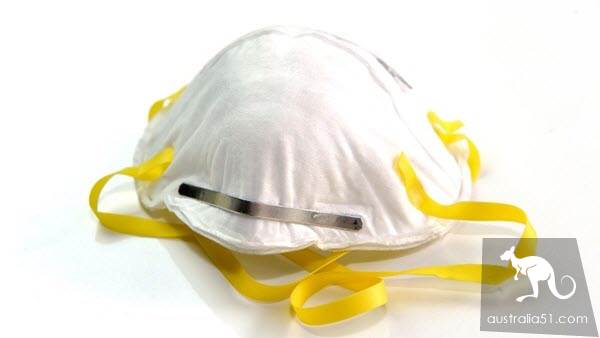
N95 masks are resistant to new crown viruses, but should not be worn for long periods of time, and do not have children`s styles (web photos)
Although wearing masks prevents the spread of a range of respiratory diseases, including the new coronavirus, not all masks protect them effectively. Some doctors point out that most masks are less protective than expected and give the illusion of safety, making it easier to ignore other aspects of health protection. An important function of wearing masks is to keep patients who already have respiratory diseases from spreading bacteria or viruses to others, or to prevent droplets from spreading diseases in close contact with people.
In addition, most masks are specially designed for adults. If children want to wear masks, they should choose children`s protective masks specially designed for children, and should pay attention to whether they are suitable to wear, avoid children often touch the face because of discomfort, and increase the risk of infection. For very young infants, even the most basic surgical three-layer mask may cause suffocation. Children should not be taken out during the outbreak, if necessary, the use of stroller awnings to block.
In addition, when using disinfection products in an environment where children live, check the instructions and observe whether the child has adverse reactions such as allergies.
To: Keep social distance
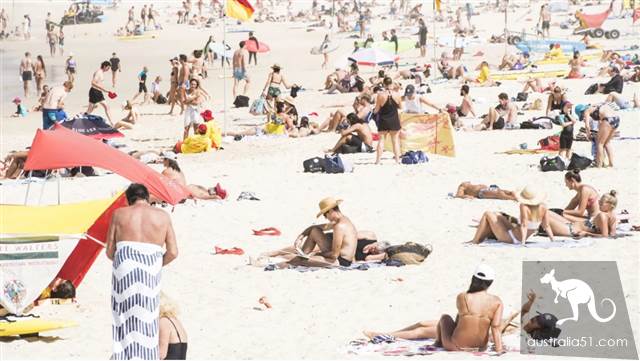
A massive influx of people to the seaside over the weekend was severely criticized for violating the rules of safe social distance (Sydney Morning Herald, photo)
A WHO recommendation for a safe distance is 1 m, while the Australian government is stricter, reaching 1.5 m. The significance of keeping social distance is to prevent the virus from spreading through droplets.
Daily life should also pay attention to maintain good breathing hygiene habits, if you want to sneeze or cough, use elbows or paper towels to block mouth and nose, and immediately deal with used paper towels, and clean hands.
New state police yesterday announced that people who violate new rules that strictly prevent the spread of the virus and do not abide by the rules of maintaining a certain social distance in public places will be fined and may even be sentenced to prison.
Chief of Police Eliot (David Elliott) said that individuals who violate the relevant regulations will be fined 1000 yuan and the company will be fined 5000 yuan.
So if you don`t want to pay your money, you have to follow this rule.
Don`t: overstock food
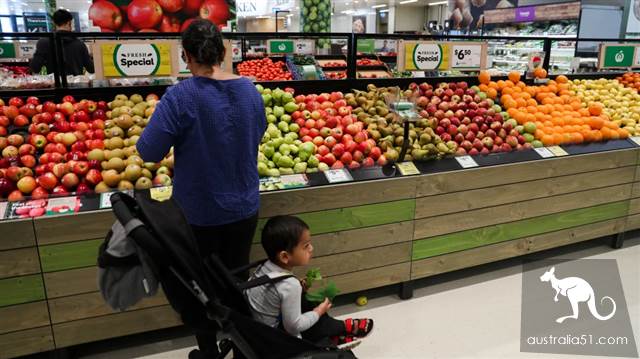
People buy food in supermarkets (Sydney Morning Herald)
As a result of the outbreak, the Australian supermarket recently appeared crazy food situation. However, excessive food hoarding is not only unnecessary, but can also lead to waste, while other people in need can not buy food.
Food stored in the home should be not easy to deteriorate, such as rice, noodles, frozen meat, dried fruit, canned food and so on. Green vegetables and fruits should not be bought too much at a time to avoid decay. When the fruit surface appears mildew rot, should throw away immediately, must not cut off the rotten part to continue to eat, prevent food poisoning.
At present, there is no evidence that vegetables and fruits can be contaminated with the virus and infected with humans, because the new coronavirus is an animal venereal disease virus and is less likely to survive on the plant surface. No new coronavirus has been reported from eating vegetables and fruits. Only need to do normal cleaning before eating.
Also should not buy the daily necessities in large quantities, especially now the big Australian supermarket has banned the partial commodity exchange.
To: Actively respond to stress
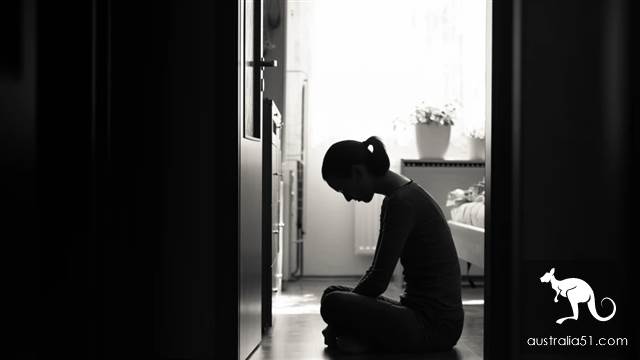
Many people experienced anxiety during the outbreak (Sydney Morning Herald, photo)
The current outbreak in Australia, facing rising numbers, you may feel very scared. At a forum Beyond Blue by the Australian Beyond Depression Association, the Australian newspaper reported seven times as many discussions of the new coronavirus as the new state forest fire. A lot of people have been feeling a lot of stress and anxiety lately, Georgie Harmon chief executive said. She gave three suggestions:
- Controlling things that can be controlled, such as eating and exercising, can give life a sense of control
- Manage the information you see every day because some of it is not true
- sit back
Sometimes reading too much news about the epidemic, especially about the number of death, can lead to empathy overload and become anxious and restless. At this time can put down the news in hand, do some irrelevant things, can also talk to friends and family, without too much entanglement.
In addition, during the outbreak of the epidemic, special attention needs to be paid to the changes in children, who may have irritability, anxiety and other reactions, which should be carefully listened to and cared for. It can also explain the current situation of the epidemic, and teach how to pay attention to their own hygiene and cleanliness, reduce the risk of infection.
No: Smoking
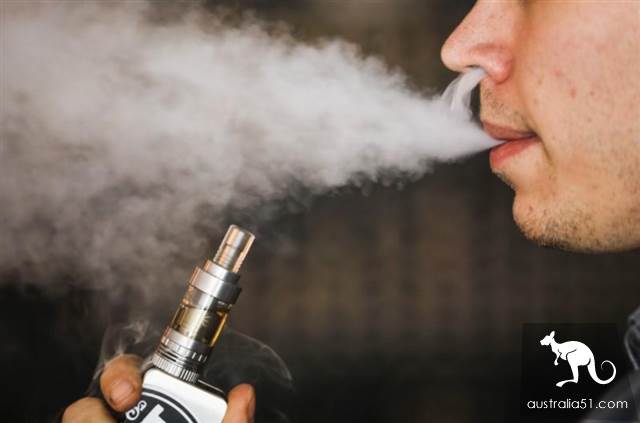
Smoking doesn`t prevent new coronavirus, but it can make people more susceptible to infection (Web Photo)
When the new coronavirus outbreak began, there was a rumour that the infection rate of smokers was far lower than that of non-smokers. In fact, smokers (including e-cigarettes) are not only susceptible to the virus, but may also be susceptible to coronavirus.
People with a history of smoking are 14 times more likely to develop the new crown virus than non-smokers, according to an article published in the Chinese Journal of Medicine. There are also numerous studies showing that smoking inhibits the immune function of the lungs and triggers inflammation. The lung damage caused by long-term smoking makes the lungs vulnerable to virus attack and more likely to develop into severe disease after infection with the new coronavirus.
In addition, many scientists believe that the new coronavirus kills more men than women because men smoke more than women.
(Collected from the Australian, Sydney Morning Herald, Australian Broadcasting Corporation, China government Network, Scientific American, World Health Organization official website, Center for Disease Control and Prevention, CNN, China Internet common disinformation platform, Dr. clove)

